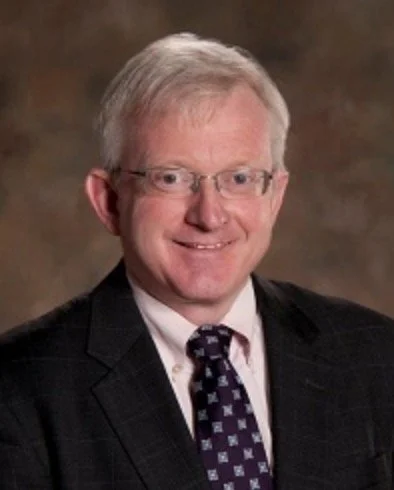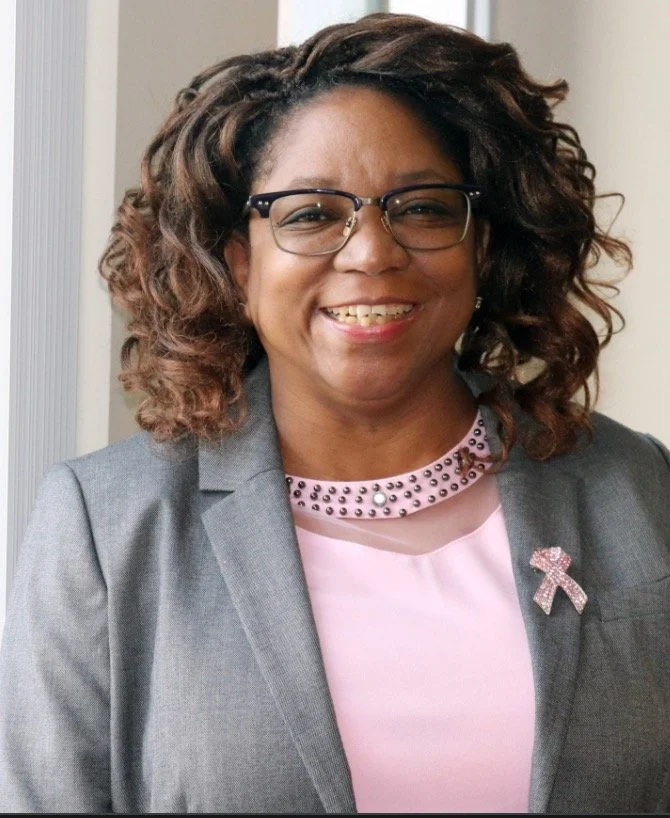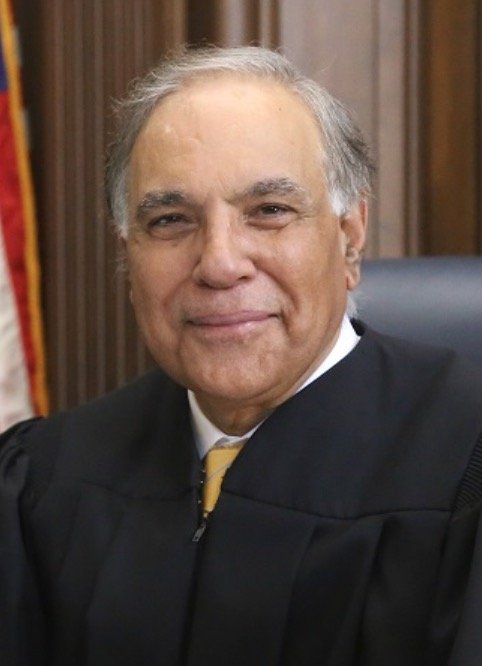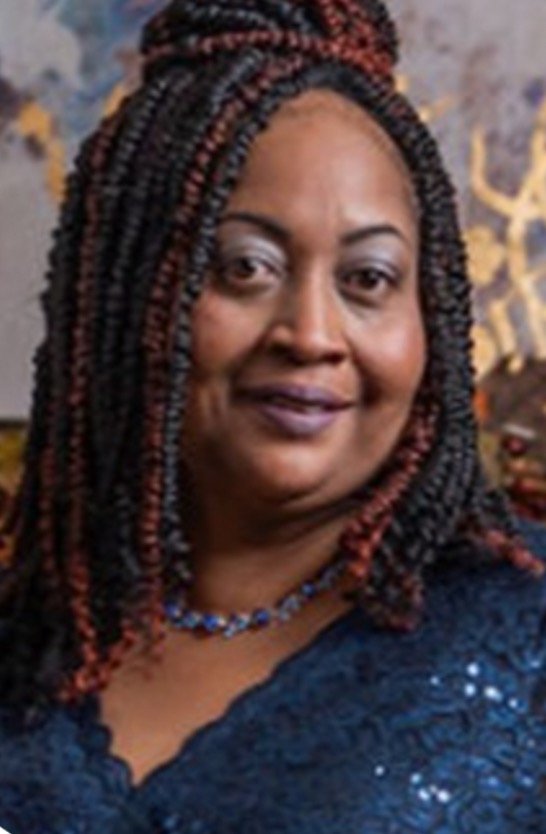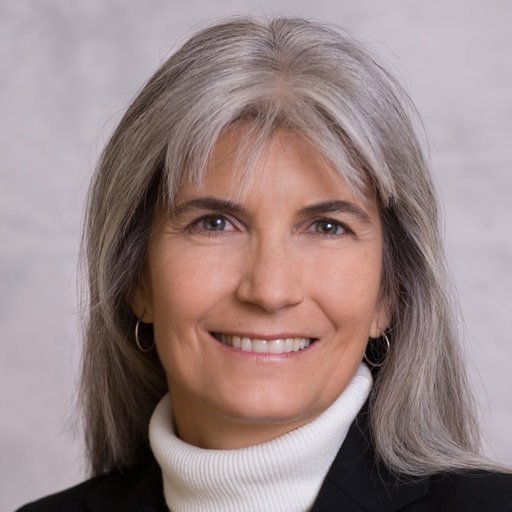Judge Elaine Gordon
Judge Elaine Gordon was appointed to the Connecticut Superior Court by the late Governor William A. O’Neill in 1988, and retired in 2011. During her 23 year tenure on the bench, Judge Gordon has decided, mediated or assisted in the settlement of virtually every type of dispute. Her expertise covers commercial, construction, employment, environmental, insurance, professional malpractice, personal injury, product liability, estate, family, and municipal cases. The hundreds of disputes over which she presided include complex, highly contentious matters, as well as multi-party litigation.
In 1993, Judge Gordon was the first Connecticut judge to become a 40-hour trained mediator. She has been an active participant in the court annexed mediation program for many years. Judge Gordon has taught numerous courses on mediation and settlement skills to judges for over 20 years. In addition, she has taught for the National Institute of Trial Advocacy, bar organizations across Connecticut and was an instructor at the Yale Law School.
She is an honors graduate of The University of Connecticut School of Law and Northwestern University.
Brendan C. Holt
Attorney Holt has been academically and professionally involved in some aspects of mediation and alternative dispute resolution for over 18 years. He graduated from St. Joseph’s University in Philadelphia, Pennsylvania with a Bachelor of Science in Labor Relations/Studies, minoring in Philosophy; and then from the Quinnipiac University School of Law, completing the Civil Advocacy and Dispute Resolution concentration.
Over the years he has participated in the mediation and negotiation of hundreds of disputes, encompassing a broad spectrum of legal issues, from complex contract and corporate disputes, to employment, labor and family law. He began mediating for a non-profit which supported the facilitation of victim and offender dialogue in criminal cases in the Waterbury and Bridgeport area court systems. Within that organization he also functioned as a case manager, receiving referrals and vetting certain community conflicts for possible mediation while assigning appropriate mediators.
For the next 7 years he mediated, facilitated and evaluated hundreds of contested financial, property and child custody disputes as a State of Connecticut Judicial Branch appointed Family Relations Counselor in the New Haven Superior Court. As a Family Relations Counselor, he underwent extensive training in the areas of child psychological development, mediation, parenting plan development, custody evaluations and domestic violence risk assessment amongst others.
In 2013 he left his position within the Judicial Branch, venturing out into private legal practice for a rapidly expanding multi-state insurance policyholder litigation law firm. There, in addition to traditional litigation and advising individuals, municipalities, corporations and insurance brokers about coverage issues and appropriate corporate risk transfer, he also counseled some of the nation’s largest construction companies through the successful mediation of multi-million-dollar insurance coverage disputes; disputes involving complex overlapping contractual obligations and potential multi-party liability payment scenarios.
Beginning in the Fall of 2017, Attorney Holt returned to his “roots” in family law, where he took on appointments as a Guardian Ad Litem, as well as litigating and mediating as an associate in a primarily family law private practice in New Haven.
Most recently Attorney Holt founded his own firm, Holt Law LLC, based in Woodbridge. His new practice is focused primarily on co-parenting coordination, collaborative family law, mediation, and broader dispute resolution pursuits. He is currently an adjunct professor at the Quinnipiac University School of Law, where he serves as the executive director of both the Homelessness Mitigation Mediation Program and the Law School’s Mediation Clinic.
In his various roles in both the public and private sector, he has had the pleasure and good fortune to represent a myriad of private individuals across the socio-economic spectrum, as well as small business owners, religious communities and billion-dollar corporations. At its core, however, the heart of his work has always been the continuing belief in the development of skills that advance the central principles of mediation and alternative dispute resolution; specifically, the ultimate value of facilitated self-determination.
Harry N. Mazadoorian
Mazadoorian serves as the Distinguished Senior Fellow at the Center on Dispute Resolution. He has been involved in the field of dispute resolution for decades as a trial lawyer, corporate attorney, bar leader, law professor and commercial arbitrator and mediator. He has served as assistant general counsel at CIGNA Corporation and vice president for government relations at its subsidiary, Connecticut General Life Insurance Company. He has also served as legislative commissioner for the State of Connecticut and town attorney for New Britain, Conn.
He played an active role in the founding of the American Bar Association's Section on Dispute Resolution and served as the charter chairperson of both the Section's Mediation Committee and Corporate ADR Committee. He also served as a member of the Section's Council as well as on the editorial board of Dispute Resolution Magazine and the CPR Institute's Publication Alternatives.
He is recognized as an expert in ADR statewide and nationally, and has been a frequent presenter and panelist at ADR programs. He served as founding chairperson of the Connecticut Bar Foundation/Quinnipiac School of Law John Speziale ADR Symposium from its inception to 2009. Mazadoorian served as editor and principal contributor to "Mediation Practice Book: Critical Tools, Techniques and Forms" and has written extensively about ADR in a number of ADR journals and periodicals. He writes a column on ADR for the Connecticut Law Tribune.
He serves as an arbitrator and mediator for a number of panels including the American Arbitration Association (since 1976), The Center for Dispute Prevention and Resolution, and FINRA. He was one of the early Connecticut attorneys appointed as an Attorney Trial Referee for the Connecticut Judicial Department. He has received a number of significant recognitions including the Community Mediation Inc. Excellence in Mediation Award, The Association for Conflict Resolution (SPDR) Pioneer Award, The Connecticut Law Tribune Service to the Bar Award, and The Connecticut Bar Foundation Distinguished Service Award. Mazadoorian has presided over a number of significant cases as an arbitrator or mediator and has mediated several major institutional health care disputes.
He is a graduate of Yale College and Yale Law School and received an Honorary Doctor of Law degree from Quinnipiac University.
Judge Lynda B. Munro
Former Superior Court Judge Lynda Munro served for 20 years on the Connecticut bench before retiring in 2014, and joining Pullman & Comley LLC as a member of the firm’s Alternative Dispute Resolution and Family Law Practices. While on the bench, she served as a Presiding Judge for the Family Division of the New Haven Superior Court, Chief Administrative Judge for Family Matters, Presiding Judge of the Regional Family Docket and resolved hundreds of high-conflict family disputes.
Judge Munro has extensive experience in the area of civil matters and is the only active mediator/arbitrator who has sat on both the Complex Litigation Docket and the Regional Family Trial Docket in Connecticut. She also serves on the editorial board of the Family Law Quarterly, a publication of the American Bar Association.
For a number of years, Judge Munro has been an adjunct law professor at Quinnipiac University School of Law where she teaches Advanced Family Law and provides guidance to women law students in job placement and career development.
Louise R. Zito
Louise R. Zito is “Of Counsel” to Dolan Divorce Lawyers. She is a family law Attorney-Mediator and Collaborative Attorney and has been practicing since 1985 with admissions to Connecticut, New York and Federal Court. She offers client consultations for all areas of family matters, is available as consulting/review counsel, provides consultations and second opinions for existing mediations, and consultation services to other professionals experiencing Impasse in their Mediations and Collaborative work. She is the founder and owner of The Center on Divorce, Mediation and Collaboration (The Center), and former Partner in Biller, Sachs, Zito and LeMoult. She is a principal and founding member of the Connecticut Family Mediation Training Group (CFMTG) and founding member of Divorce Solutions of Connecticut (DSC). Louise is a Past President and current Board member for Connecticut Council for Non-Adversarial Divorce (CCND), where she serves as the liaison with The Center on Dispute Resolution and Quinnipiac School of Law. Louise is Co-Chair of the Taskforce on Reimagining Family Dispute Resolution, a joint project of CCND and The Center.
She has a deep understanding of and appreciation for the team approach to resolving family matters having practiced Collaborative Divorce and Co-Mediation for many years. The break-up of the family unit is not solely a legal concern, but an emotional and financial one as well. It is extremely important to Louise that her clients get the best professional assistance and support while going through a divorce or break-up, dividing assets and income, making difficult parenting decisions, facing addiction and mental health issues and other trying circumstances while separating or divorcing. She founded The Center to bring in experienced, dedicated professionals to help clients reach resolution of their family problems.
In addition to representing people in divorce, Louise also uses Collaboration to address parenting, college, prenuptial, post-nuptial, Post-Judgment issues, as well as family-owned business break-ups and care of the sick and elderly.
Attorney Zito has mediated family and related matters for 25 years and draws heavily on her Mediation experience in her Collaborative work. She also trains Attorneys, Mental Health Family Specialists and Financial Specialists in Basic and Advanced Family Mediation and sits as a Special Master in New Haven Superior Court, Family Division. She served as an Adjunct Professor, Quinnipiac University-Philosophy Department where she taught Ethics and Diversity to Business School students from 2001-2005.
Roy L. De Barbieri
Atty. Roy L. De Barbieri of New Haven, Connecticut is Of Counsel to the Firm of Zangari Cohn Cuthbertson Duhl & Grello P.C. with offices in New Haven, Hartford and Providence. Mr. De Barbieri is also a distinguished dispute resolution neutral, with over 25 years of experience as an arbitrator and mediator throughout the Northeast and across the country.
Over the years, Mr. De Barbieri has arbitrated and mediated domestic and international commercial disputes. He has also served as presiding arbitrator, co-arbitrator, and sole arbitrator in approximately 450 arbitrations, authored dozens of reasoned awards, mediated approximately 100 commercial disputes, and conducted ad hoc mediations and arbitrations. In addition, Mr. De Barbieri testifies as an expert on dispute resolution and lectures to Bar Associations and law firms on the topic of dispute resolution theory and practice.
He is a Fellow of the College of Commercial Arbitrators, where he also served as the Chair of the Law Firm CLE Education Committee, and a Director. Mr. De Barbieri is a member of the Executive Committee of the ADR Section of the Connecticut Bar Association, and a Past Chair. Additional memberships include the AAA Large Complex Case Panel of Arbitrators, the AAA Mediation Panel, and The Chartered Institute of Arbitrators in London. He has served as a CT. ADR Center instructor, for many programs on arbitration best practices and mediation advocacy.
Peter Benner
Benner has taught alternative dispute resolution at Quinnipiac University School of Law. He also practices dispute resolution as an independent mediator, arbitrator and resolution consultant. He has been in a solo practice since 2010, following more than 30 years as a litigator at Shipman & Goodwin, LLP in Hartford.
Benner employs primarily a facilitative and value-creation style of mediation over a range of matters, focusing in the business and healthcare fields. Benner is also a member of the American Arbitration Association Commercial and Healthcare panels. He writes and speaks regularly on a range of dispute resolution topics and has taught at University of Connecticut Law School prior to joining the Quinnipiac faculty.
Gary Phelan
Phelan is a shareholder at Mitchell & Sheahan, P.C. He represents employees and employers in a wide range of matters, including disability and age discrimination, family responsibilities discrimination, wrongful termination and severance negotiations. He is the co-author of Disability Discrimination in the Workplace (West Group) and Family Responsibilities Discrimination (BNA/Bloomberg). Gary was selected by peer review in Best Lawyers in America (1995-2020) and was designated as a “Lawyer of the Year” by Best Lawyers for the Stamford, CT Region in 2012. Gary was selected for the Connecticut Super Lawyers (2006-2020), and was designated as a “Local Litigation Star” in Benchmark Litigation (2013-2020). He has written and lectured on a wide range of employment-related topics. Gary teaches disability law, employment discrimination law and alternative dispute resolution as an adjunct professor at the Quinnipiac University School of Law.
Angela C. Robinson
Angela C. Robinson, retired Connecticut Superior Court Judge, provides alternative dispute resolution (ADR) services as a mediator, private judge, and arbitrator for all types of matters including tort, personal injury, commercial business, contract disputes, and select housing and family law. Additionally, Judge Robinson provides pre-litigation interventions, including discovery dispute resolution assistance and independent investigations.
For twenty years, Judge Robinson was a Connecticut Superior Court judge, presiding over hundreds of trials and deciding or assisting in the settlement of a variety of matters, including commercial, contract, employment, family, housing, insurance, juvenile, medical and professional malpractice, municipal, personal injury, products liability and zoning cases. As a judge, she wrote over 400 judicial decisions. At the time of her retirement, she was the Administrative Judge for the Judicial District of New Haven, and for many years prior to that, she was the Civil Presiding Judge in the New Haven Judicial District, the busiest Civil docket in the state at the time.
Judge Robinson is currently of counsel at Halloran Sage, and runs her own consulting firm to address workplace diversity, equity, and inclusion concerns. She is a Visiting Professor and the Waring and Carmen Partridge Faculty Fellow at Quinnipiac Law School, where she teaches ADR, Evidence, Remedies, and Critical Race Theory. Judge Robinson is the author of First Black Women Judges: The Story of Three Black Women Judges in the United States.
Judge Robinson complements her knowledge as a jurist with a wealth of experience as a practicing attorney. She was both a plaintiff’s lawyer at a nationally renowned boutique law firm in Bridgeport, and a litigation partner with a defense practice at a multi-state, New Haven-based law firm. This background allows Judge Robinson to bring to the ADR community a unique perspective to assist litigants from all walks of life in resolving their matters.
Judge Robinson also learned firsthand about the power and efficacy of ADR in achieving righteous outcomes. Melding her interests in ADR and workplace equity, Judge Robinson established Robinson Diversity Consulting through which she has helped litigants and prospective litigants resolve disputes informally and outside of court, as well as addressed workplace diversity, equity, and inclusion concerns.
Judge Robinson is a James W. Cooper Fellow of the Connecticut Bar Foundation. She received the Connecticut Law Tribune’s Distinguished Leader Award in 2019; the Edwin Archer Randolph Diversity Award from the Lawyers’ Collaborative for Diversity in 2017; the Judicial Award from the Connecticut Trial Lawyers’ Association; and the Diversity Award in 2014, presented by the Young Lawyers’ Section of the Connecticut Bar Association.
She serves on the Advisory Council of Connecticut Court Appointed Special Advocates (CASA), as well as the Boards of the Greater New Haven Arts Council and the New Haven Legal Assistance Association. Additionally, she is a Visiting Professor and the Waring and Carmen Partridge Faculty Fellow at Quinnipiac Law School, where she teaches Evidence, Remedies and Critical Race Theory. She also teaches trial practice at Yale Law School. Through these roles, she works to train new generations of lawyers, sharing her knowledge of the law and Diversity, Equity and Inclusion to improve the legal profession.
Nawaz Wahla
Judge Wahla’s journey to becoming a Connecticut Superior Court judge began on November 5, 2010, when he was nominated by Governor Jodi Rell and then subsequently confirmed by the House and Senate, making him the first Pakistani Muslim American to be appointed as a judge in Connecticut. Over the course of the last ten years he has presided over hundreds of cases, overseeing complex and multi-party actions. His responsibilities have included presiding over jury and bench trials, discovery disputes, pre-judgment and post judgment application remedies, motion practice and the mediation of many cases. Judge Wahla is currently serving as a civil judge in the New Haven Judicial District, and before that served as a judge in the criminal, family, and juvenile subject areas. In his capacity as a judge he has utilized decades worth of experience I had with dispute resolution, and applied and academic negotiation techniques.
Prior to being appointed to the bench, Judge Wahla was the principal in the law firm of Judge Wahla and Associates, which he founded in 1999. His clients included children, students, families, entrepreneurs, members of vulnerable populations, international refugees, and small corporate clients. He has argued cases at the trial and appellate level in the Superior Court for the State of Connecticut, and in the following federal courts: District of Connecticut, Southern District of New York and the Second Circuit Court of Appeals. As an attorney, Judge Wahla believes in the importance of dedicating himself to the community and public interest, and approximately 25% of his practice was dedicated to pro bono work. He also served as a member of the Board of Directors of the Hartford County Bar Association from 2009 to 2010, was a Bencher with the Oliver Ellsworth Inn of Court since 2006, and was happy to be a mentor to the young and diverse membership of the bar. In June 2018, he was appointed as a Senior Fellow at the EastWest Institute, a global organization engaged in the track two diplomacy, building trust and delivering solutions.
Judge Wahla has been a member of the World Affairs Council of Connecticut since 2010, where I have been extensively and consistently engaged in the domestic and international issues confronted by our world on a day to day basis. He was nominated to be a Member of the Board of the World Affairs Council of Connecticut in June 2020. In May 2018, the Fletcher School of Law and Diplomacy, appointed him to be a member of the Advisory Council for Global Master of Arts Program. In June 2018, he led a Geneva Global dialogue China-US relationship group and in May 2020, he joined the Pacific Council on International Policy. During the course of his career, Judge Wahla has received a myriad of awards. In 2011, he received the Trailblazer Award from the South Asian Bar Association of Connecticut and in that same year he was also the recipient of the Connecticut Asian Pacific American Affairs 2011 Leadership Award. Most recently, he received the 2014 Immigration Day Award for my community contributions to the Connecticut Immigrant Refugee Coalition and in 2017 I was inducted into the Immigrant Heritage Hall of Fame.
Prior to becoming a lawyer, Judge Wahla served in the Pakistan Army for approximately twenty years, and rose to the rank of major before being wounded in the line of duty. He was the recipient of an award equivalent to the purple heart. He received his LLB from the University of the Punjab Law College in Pakistan, and continued to complete his Masters in Comparative Jurisprudence at the University of Texas School of Law, and then his Masters of Law at the University of Houston. Thereafter, he was a fellow at the International Court of Justice in The Hague, Netherlands. In July 2017, he received a Masters in Global Affairs degree from Tufts University, Fletcher School of Law and Diplomacy.
Judge Wahla retired from the bench on July 2nd, 2021. In the fall of 2022, Judge Wahla will be in Pakistan, teaching trial practice and other courses at National University of Sciences and Technology in Islamabad.
L'Enchantel "Berta" Holmes
L'Enchantel "Berta" Holmes is currently the Associate Director of Quinnipiac Law School’s Homelessness Mitigation Mediation Project, a project funded by the Connecticut Department of Housing and supported by the Center and the law school’s mediation clinic. Prior to this, Berta worked for Community Mediation, Inc., for 18 years from 1997-2015, during which time she mediated over 1,500 neighborhood and landlord/tenant disputes. During that time, she also served as lead trainer for Connecticut's Eviction Prevention & Foreclosure and Security Deposit programs.
For Berta, the practice of mediation is key to preserving relationships between landlords and tenants. This is especially important now in the wake of Covid-19 and the end of the State’s eviction moratorium, but the need for mediation services will not end with the pandemic. What she likes most about mediation is how it allows individuals to heal and gives them a voice. “People are able to be heard without interruption. There is no one saying ‘overruled’ or ‘objection’ while they are trying to tell their story.” Berta hopes in the future that courts will be more supportive of private mediation. She thinks if courts trusted private mediation and developed relationships with private mediators, everyone would benefit emotionally, mentally, and financially. “We have lost the ability to really see other people, and mediation helps people to humanize an opposing party…there is more than one way for people to win—someone doesn’t always need to get hurt for someone else to win”.
Berta is a graduate of Albertus Magnus College in New Haven, Connecticut. She received her Associate Degree in 2004; her Bachelor of Arts (Criminal Justice), Cum Laude, in 2007, and a Master of Arts in Leadership in 2010. From 2011-2014, she taught at Albertus as an Adjunct Professor of Criminal Justice.
Kim Wright
Kim Wright is a Visiting Clinical Professor. As a legal systems change agent, Professor Wright has a lot of roles and job descriptions. She is co-founder and trainer in the Conscious Contracts(R) movement and is a pioneer in holistic law, collaborative practice, restorative justice, legal design, therapeutic jurisprudence, plain language, and other cutting-edge approaches. After a dozen years of being a nomad, bringing change, connection, and humanistic innovations on six continents, in 2020 she took her work online. Professor Wright also created the Negotiation Clinic with Professor Horani, and teaches it periodically. Beginning in 2022, she will also teach a new course, The Integrative Law Approach to Negotiation.
Professor Wright is also a consultant, connector, and trusted advisor for cutting-edge lawyers, like-minded professionals, and communities around the world. She creates courses, articles, conferences, new approaches, and organizations. Among her publications are three American Bar Association books, and J. Kim Wright, Integrative Law , 46 U. W. Austl. L. Rev. (2019).
For more information about Professor Wright and to see more of her books and published works, see http://jkimwright.com/ or https://www.linkedin.com/in/jkimwright/.
Susan Swaim Daicoff
Susan is an experienced law professor, lawyer, author, speaker, mediator, and administrator. Now fully retired, she spent two years as the Director of the Volunteer Lawyers Program at Southern Arizona Legal Aid, Inc. Before that, she was a court administrator and judge pro tem for limited jurisdiction courts in Maricopa County, Arizona. Previously, she served as a doctrinal tenured professor of law for 23 years in three ABA-accredited law schools, the last four years of which she was the Director of Clinical Programs, managing multiple live client clinics. She makes her home currently in Prescott, Arizona.
Daicoff’s primary scholarship and speaking expertise focus on what she calls the “comprehensive law movement,” or the practice of law as a healing profession. This movement includes the integration of social sciences into the law, therapeutic jurisprudence, restorative justice, problem solving courts, collaborative law, integrative law, preventive law, transformative mediation, and innovative forms of alternative dispute resolution and legal services delivery (unbundling). She has also explored professional development of lawyers, the “soft skills” of the law, and lawyer personality, distress, and wellbeing. She is thrilled to join Quinnipiac’s Project on Integrative Law to continue her work.
Daicoff had a varied legal practice, including corporate, securities, and tax transactional work for over four years prior to academia, a year and a half in the courts, and two years in legal aid after academia. She worked as a mental health psychotherapy resident for two years, focusing on trauma recovery. Her legal practice areas include contracts, ethics and professional responsibility, mediation, negotiation, business law, and rehabilitative law.
Daicoff has written two books and 21 book chapters or journal articles in the law, in addition to other pre-law publications. She has given over 120 professional presentations nationally and internationally. Her most recent book is Comprehensive Law Practice: Law as a Healing Profession (Carolina Academic Press, 2011).









